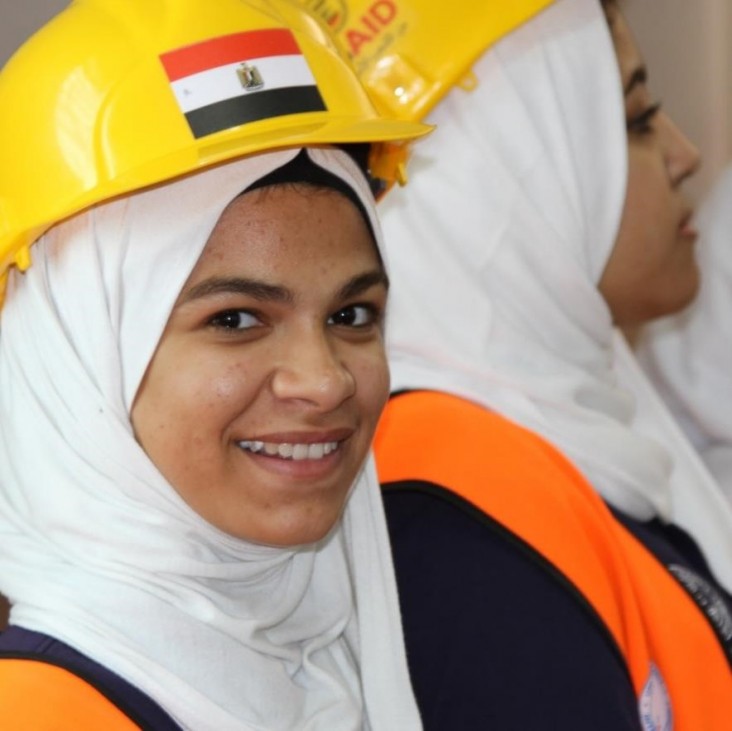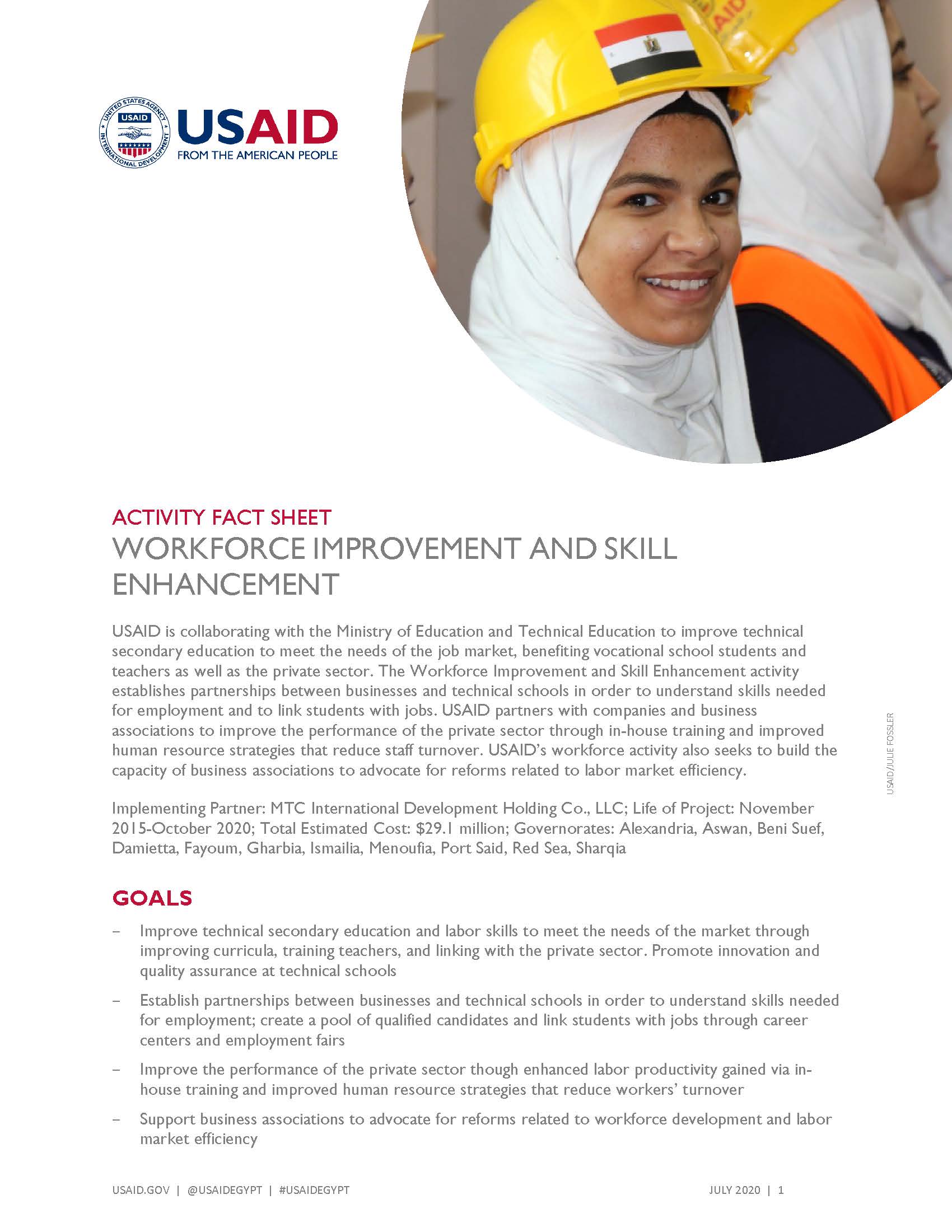Speeches Shim

USAID is collaborating with the Ministry of Education and Technical Education to improve technical secondary education to meet the needs of the job market, benefiting vocational school students and teachers as well as the private sector. The Workforce Improvement and Skill Enhancement activity establishes partnerships between businesses and technical schools in order to understand skills needed for employment and to link students with jobs. USAID partners with companies and business associations to improve the performance of the private sector through in-house training and improved human resource strategies that reduce staff turnover. USAID’s workforce activity also seeks to build the capacity of business associations to advocate for reforms related to labor market efficiency.
Implementing Partner: MTC International Development Holding Co., LLC; Life of Project: November 2015-October 2020; Total Estimated Cost: $29.1 million; Governorates: Alexandria, Aswan, Beni Suef, Damietta, Fayoum, Gharbia, Ismailia, Menoufia, Port Said, Red Sea, Sharqia
GOALS
- Improve technical secondary education and labor skills to meet the needs of the market through improving curricula, training teachers, and linking with the private sector. Promote innovation and quality assurance at technical schools
- Establish partnerships between businesses and technical schools in order to understand skills needed for employment; create a pool of qualified candidates and link students with jobs through career centers and employment fairs
- Improve the performance of the private sector though enhanced labor productivity gained via in-house training and improved human resource strategies that reduce workers’ turnover
- Support business associations to advocate for reforms related to workforce development and labor market efficiency
RESULTS
- STUDENT TRAINING AND EMPLOYMENT: Trained 1,200 teachers to establish units to help students transition from school to the workforce in 63 schools within 11 Egyptian governorates. Through these units, students received entrepreneurship training (65,592 students to date), career guidance and counseling (57,521 students), and connections to private sector firms through in-company internships (17,3548 students) and/or employment (28,706). Introduced the Ebdaa’ Rehletak or “Start Your Journey” program in collaboration with the Ministry of Trade and Industry and the Ministry of Social Solidarity, a training program designed to connect out-of-school job seekers to factory-based training and jobs. Partnered with 56 private sector companies to implement productivity improvement strategies and improve company human resources systems. Built the institutional capacity of the Alexandria Business Association’s Vocational Training and Employment Center in implementing demand-driven technical training.
- PEER-TO-PEER MENTORING: Developed and piloted the Peer Helping Program and trained 467 students to be peer helpers, improving technical learning through collaboration and shared experience.
- CURRICULUM DEVELOPMENT: Developed new market-driven logistics and new and renewable energy curricula programs for use in technical secondary schools. The logistics program is being successfully piloted in two schools, and the new and renewable energy program is being piloted in three schools.
- ENTREPRENEURSHIP: Established 240 innovation clubs at technical schools in five governorates for the first time in Egypt and supplied state of the art fabrication laboratories that include a 3D printer, laser cutter, and computer numerical controls in 10 of these clubs. Developed a unified entrepreneurship/innovation curriculum that is used in all technical schools. Published a referral handbook on entrepreneurship to guide students on how to develop an entrepreneurship project and connect with financial and non-financial service providers. WISE-supported students won all three awards dedicated to the technical vocational education and training track at the Nawah Social Entrepreneurship Challenge, a national competition of entrepreneurs held annually in Egypt during Global Entrepreneurship Week.
- EVALUATION AND EFFICIENCY: Developed technical education quality standards, which will result in the creation of a National Index for technical education. Conducted a labor market survey, and based on the stakeholders’ analysis in the study, established an Enabling Environment Advisory Group at the Egyptian National Competitiveness Council to advocate for reforms that improve labor market efficiency at the national level. Established an Economic Partnership Council in Beni Suef, the first such council in Egypt, to promote local economic development and improve labor market efficiency at the governorate level.



Comment
Make a general inquiry or suggest an improvement.